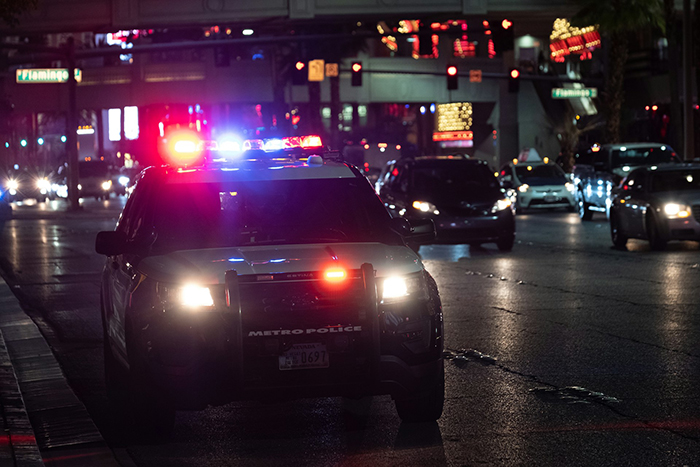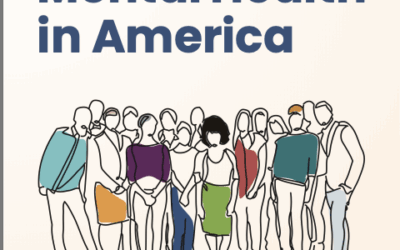By Maria Pitella
Maria is a first year law student at the University of Richmond and a volunteer intern with Mental Health Virginia.
Mental and behavioral health are increasingly prolific public health topics that have garnered much needed public attention over the past few decades in the United States. Although the number of resources and outlets for individuals facing mental health crises has grown exponentially, these issues are still prevalent today.
Most areas of the country—including Virginia—rely heavily on police officers to respond to and manage mental health crises. According to the National Alliance on Mental Illness (NAMI), one in every four people with a serious mental illness has been arrested. (1) Individuals with behavioral health disorders often do not react to stimuli in the manner a neurotypical person would. The flashing lights of police vehicles and loud noises of people speaking can trigger an otherwise irregular or aggressive response. Officers may perceive this erratic behavior as a blatant disobedience of their orders if they have not identified that this person is experiencing a mental health crisis or has a behavioral health disorder. Without training on how to identify and respond to individuals with these conditions, law enforcement officers may be ill equipped to deal with these difficult encounters.
Although this is a serious public health concern, the Commonwealth does not have codified legislation mandating training for law enforcement officers regarding how to respond to individuals with mental or behavioral disorders. Many agencies in Virginia (2) have created specialized Crisis Intervention Teams (CIT) as part of the Virginia CIT Coalition (3) that engage with local law enforcement agencies and community partners to better respond to those facing behavioral health crises. Although this program engages with almost every community service board in Virginia, the Commonwealth has failed to implement a standardized training for all law enforcement agencies regarding response to mental and behavioral health crises.
Senate Bill 1194 changes this. First, the bill requires the Department of Criminal Justice Services (DCJS) and the Attorney General to create a mandatory training course for law enforcement on how to best to use their discretion during certain instances. The bill specifically enumerates that the training be on “the arrest and prosecution of persons with mental or behavioral health disorders.” (4) Law enforcement officers across Virginia would be required to complete this training by July 1, 2026, and every other year thereafter. Not only does this create standardized instruction for agency policy and procedures, but it gives law enforcement officers the soft skills necessary when interacting with individuals facing mental and behavioral health challenges. Additionally, this bill ensures DCJS training for special conservators of the peace to ensure the fair prosecution of individuals facing mental and behavioral health challenges.
Although not a panacea for how to respond to mental health crises, mental health response training allows law enforcement officers to better serve their communities. After reconciling differences with the similar House Bill in conference committee, SB 1194 passed the Senate 39 to 0, passed the House 58 to 39, and is currently pending review by the Governor. If signed into law, this change will help ensure the safety of individuals facing mental and behavioral health challenges when interacting with law enforcement officers in Virginia.
We urge you to contact Governor Younkin and ask him to sign the bill. https://www.governor.virginia.gov/communicating-with-the-governors-office/
Resources:
Virginia Peer-Run Warm Line
866-400-6428
Our Warm Line is a peer-run service for residents of Virginia. We offer this support line for individuals, family members, and other concerned parties who would like someone to talk to, or who request community mental health resources, or who have specific questions about their recovery journey.
Virginia Department of Criminal Justice Services
Offers training, programs, and resources related to mental health and trauma support for public safety agencies and education systems through the Virginia Center for School and Campus Safety.
International Association of Chiefs of Police (IACP)
Has model policies and other resources specifically for police agencies that cover responding to mental health crises and individuals with intellectual and developmental disabilities.
- https://www.nami.org/wp-content/uploads/2023/07/VirginiaStateFactSheet.pdf
- https://www.fairfaxcounty.gov/police/Chief/Messages/CrisisInterventionTraining; https://police.virginiabeach.gov/your-vbpd/explore-the-department/cit
- https://virginiacit.org/about/
- https://lis.virginia.gov/bill-details/20251/SB1194




